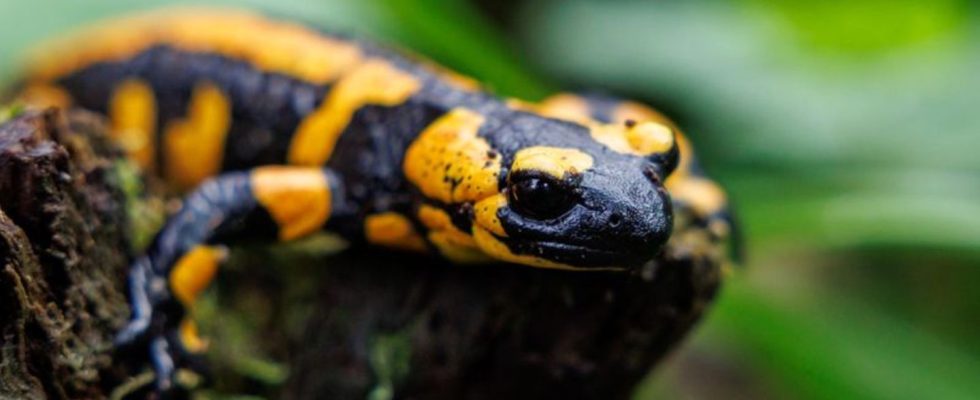Animals
WWF: The wave of extinction continued practically unabated in 2023
Among the amphibians, salamanders are the most threatened group. photo
© Daniel Karmann/dpa
Increasingly warmer climate, environmental pollution, destroyed habitats: thousands of animal and plant species worldwide are considered threatened. Despite some negative developments in 2023, the WWF also sees bright spots.
With a view to protecting species, the environmental foundation is taking action WWF has a mixed review of the year that is coming to an end. “The largest wave of extinction since the end of the dinosaur era rolled across our nature practically unchecked in 2023,” said the organization’s nature conservation director in Germany, Kathrin Samson, according to a statement. The environmental foundation lists negative and positive developments.
She names lions in Africa, Humboldt penguins, river dolphins in the Amazon and amphibians worldwide as losers of the year in the animal kingdom. Among the amphibians, salamanders are the most threatened group. The penguins in Chile were particularly affected by the rampant bird flu, and the dolphins were probably affected by water temperatures of over 39 degrees at times: “Ten percent of the river dolphin population in Lake Tefé died in just one week,” it said. The problem there: a century-long drought.
According to the WWF (World Wide Fund For Nature), these loser species represent thousands of other threatened species. The International Red List now identifies more than 44,000 animal, plant and fungal species as threatened.
Pleasing news from the Indian Tiger
In its balance sheet, the WWF names India’s tigers, Africa’s rhinos and bison in the Caucasus as winners. A year ago, white rhinos were still listed as losers, but now there is talk of an increase in the number of these animals for the first time after ten years of decline. The number of tigers in some Asian countries has also “enjoyed a positive increase,” it said. In India there are particularly many with more than 3,600 copies.
There are also examples on our doorstep in Germany: the WWF sees otters in Bavaria as winners. The Bavarian Administrative Court recently ruled that these strictly protected animals may not be killed in exceptional cases for the time being.
According to the foundation, the main causes of declining numbers for many species are habitat destruction, poaching, overexploitation, invasive species, pollution and the climate crisis. “Humans caused the extinction of species. They therefore have a responsibility to end the crisis,” said Samson, according to the WWF statement.

